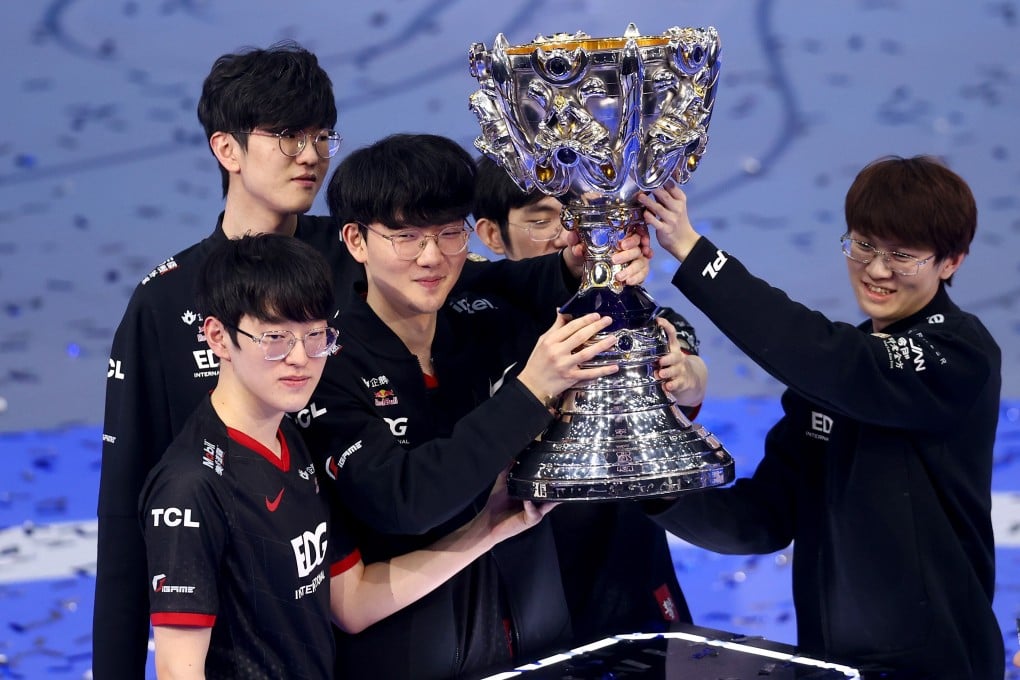Chinese esports fans celebrate country’s latest world championship amid Beijing’s tightened controls on video gaming
- Edward Gaming has become only the third Chinese team to win the esports industry’s coveted League of Legends World Championship finals
- The Shanghai-based team also claimed the tournament’s pool prize money totalling US$2.225 million

This year’s five-game world championship finals kicked off at 8pm local time and finished around 1am on Sunday. All the EDG fans who clapped, yelled and cheered throughout the night were rewarded with the team’s winning 3-2 score over its rival.
EDG hoisted the coveted winner’s trophy the Summoner’s Cup and claimed the pool prize money totalling US$2.225 million, as the group bested 21 other teams which took part in this year’s championship series, which started on October 5. EDG’s mid lane player, Lee “Scout” Ye-chan, received the Most Valuable Player award for the finals.

“No one expected them to win,” said esports fan Jasmine Lu, who watched the championship finals at her home in Ningbo, a city in eastern Zhejiang province. “Nearly every prediction said they would lose the game. If I was still in university, I would’ve definitely yelled with others [to express happiness for EDG’s victory]. It’s like you proved all the doubters wrong.”